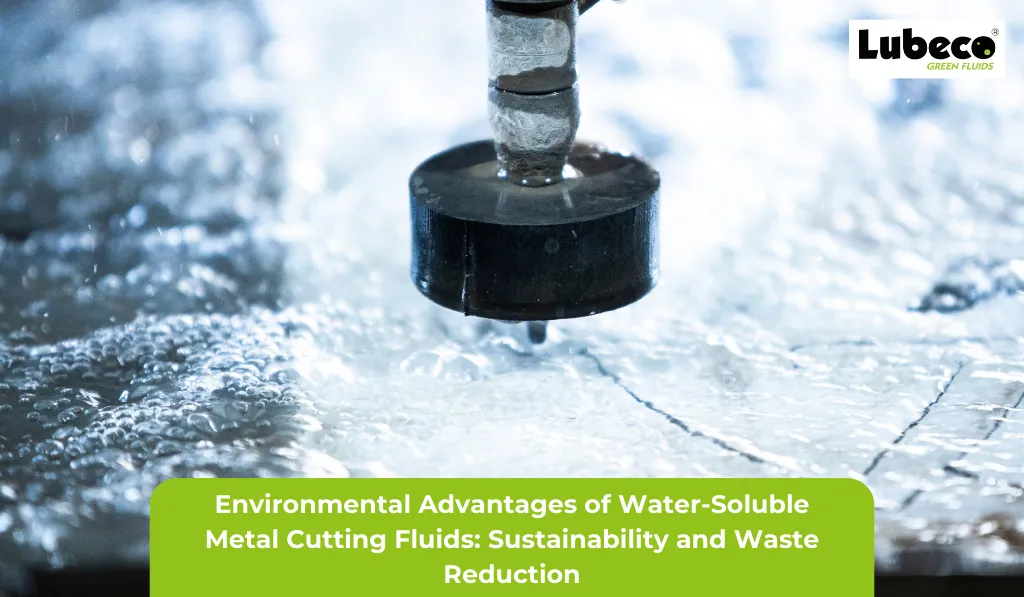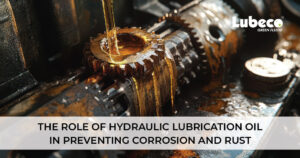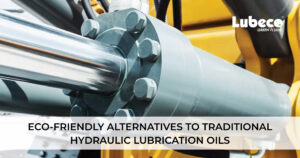Introduction:
Metalworking processes play a crucial role in various industries, contributing to the production of essential goods ranging from automobiles to electronics. However, these processes often involve the use of cutting fluids to lubricate, cool, and improve the efficiency of metal cutting operations. Traditional cutting fluids, such as oil-based ones, have long been associated with environmental concerns due to their potential negative impacts. In recent years, water-soluble metal cutting fluids have emerged as a more environmentally friendly alternative, offering sustainability benefits and significant waste reduction. This blog explores the environmental advantages of water-soluble metal cutting fluids and their role in promoting a greener and more sustainable manufacturing industry.
What are Water-Soluble Metal Cutting Fluids?
Water-soluble metal cutting fluids are specialized lubricants and coolants used in metalworking processes. Unlike traditional oil-based fluids, these solutions have water as their primary base and are formulated with various additives to enhance their performance. They are designed to improve the efficiency of metal cutting operations while minimizing environmental impact and promoting worker safety.
Top 5 Applications of Water-Soluble Metal Cutting Fluids:
- Machining Operations: Water-soluble cutting fluids are widely used in various machining operations, including milling, turning, and drilling. They provide effective cooling and lubrication, reducing friction between the cutting tool and the workpiece. This ensures precise and efficient metal removal while extending the lifespan of the cutting tools.
- Grinding Processes: In precision grinding applications, water-soluble metal cutting fluids play a crucial role in maintaining consistent temperatures and preventing thermal damage to the workpiece. The fluids aid in the removal of swarf and heat generated during the grinding process, contributing to improved surface finish and dimensional accuracy.
- Metal Forming: Water-soluble fluids find applications in metal forming processes such as stamping, forging, and extrusion. These fluids assist in reducing friction between the dies and the metal, facilitating smoother deformation. The cooling properties of these fluids also help prevent tool wear and enhance the overall efficiency of metal forming operations.
- CNC Machining: With the rise of computer numerical control (CNC) machining, water-soluble metal cutting fluids have become essential. CNC machines often operate at high speeds and precision, generating substantial heat. Water-soluble fluids effectively cool the cutting tools and workpieces, ensuring consistent machining quality and prolonging the life of expensive CNC equipment.
- Metalworking in Aerospace and Automotive Industries: The aerospace and automotive industries, known for their stringent quality requirements, benefit significantly from the use of water-soluble metal cutting fluids. These fluids are employed in the manufacturing of critical components, such as engine parts and aircraft components, where precision, cleanliness, and environmental considerations are paramount.
Navigating the Green Path with Water-Soluble Metal Cutting Fluids
- Reduced Environmental Impact: Water-soluble metal cutting fluids are formulated with water as the primary base, making them inherently more environmentally friendly than their oil-based counterparts. Traditional cutting fluids often contain hazardous chemicals and additives that can lead to soil and water contamination. In contrast, water-soluble fluids are generally free from harmful components, reducing the risk of environmental pollution during and after the metalworking processes.
- Energy Efficiency in Production: The manufacturing of water-soluble metal cutting fluids typically requires less energy compared to the production of oil-based alternatives. The extraction, refinement, and processing of petroleum-based products involve energy-intensive processes that contribute to carbon emissions. Water-soluble fluids, on the other hand, are often derived from readily available and renewable resources, resulting in a lower carbon footprint and promoting energy efficiency.
- Improved Worker Safety: Traditional cutting fluids, particularly those based on mineral oils, can pose health risks to workers due to the presence of toxic chemicals and fumes. Water-soluble metal cutting fluids are generally safer for workers as they contain fewer harmful substances. This not only creates a healthier working environment but also reduces the need for stringent safety measures and personal protective equipment, contributing to a more sustainable and socially responsible workplace.
- Efficient Cooling and Lubrication: Water-soluble cutting fluids are known for their excellent cooling and lubrication properties, which are crucial for the metal cutting process. The efficient heat dissipation and reduced friction contribute to extended tool life and improved machining accuracy. This efficiency not only enhances the overall productivity of metalworking operations but also minimizes the need for frequent tool replacements, reducing waste and the environmental impact associated with the disposal of used tools.
- Minimized Waste Generation: One of the key environmental advantages of water-soluble metal cutting fluids is the reduction in waste generation. Unlike oil-based fluids that can lead to the accumulation of hazardous waste, water-soluble fluids can be easily treated and disposed of in an environmentally responsible manner. Additionally, the longevity and stability of water-soluble fluids mean that they can be used for a more extended period, further minimizing the frequency of fluid changes and the associated waste.
- Recyclability and Reusability: Water-soluble cutting fluids can often be recycled and reused, further contributing to waste reduction. Proper filtration and purification systems can remove contaminants, allowing manufacturers to extend the lifespan of these fluids. This not only reduces the amount of fluid that needs to be disposed of but also lowers the demand for new fluid production, supporting a circular and sustainable approach to resource utilization.
Conclusion:
In conclusion, the adoption of water-soluble metal cutting fluids represents a significant step toward creating a more environmentally sustainable and responsible metalworking industry. The numerous environmental advantages, including reduced impact, energy efficiency, improved worker safety, and minimized waste generation, make water-soluble fluids a compelling choice for manufacturers seeking to balance economic interests with environmental stewardship. As industries continue to evolve and prioritize sustainability, the widespread adoption of water-soluble cutting fluids is likely to play a pivotal role in shaping the future of metalworking processes.










